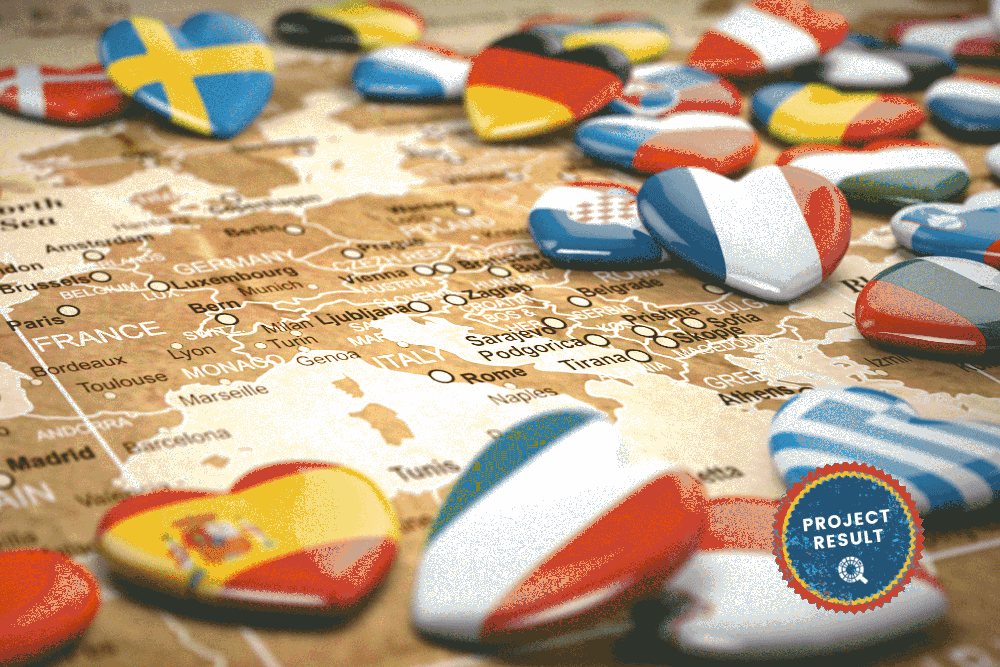Since November 2019 the international research project CS Track has been combining traditional social-science methods with web-based and computational analytics in order to systematically survey the field of Citizen Science.

We would like to inform that this project is inactive since December 2022. As a result, the content presented on this website is static, which means it cannot be updated, and no new information will be added. Consequently, interactive features such as the search function, or subscription and commenting capabilities are unavailable.

Since November 2019 the international research project CS Track has been combining traditional social-science methods with web-based and computational analytics in order to systematically survey the field of Citizen Science.
Since November 2019 the international research project CS Track has been combining traditional social-science methods with web-based and computational analytics in order to systematically survey the field of Citizen Science. Based on our findings, we have now...
Online Seminar on Wednesday, 25 January 2023, 14:00 – 15:00 CET The main mission of the CS Track project has been to observe and analyse the phenomena of citizen science using empirical and theoretical studies. Based on these studies, the team have constructed a...
Collect data on some project characteristics which cannot be answered by visiting project websites.
The biannual ECSA conference organised under the theme Citizen Science for Planetary Health got off to a great start in Berlin on 5 October with a welcome reception in the Museum of Natural History. The surroundings, dominated by dinosaurs and other fossils was a fine...
During the Engaging Citizen Science Conference in Aarhus, Denmark, in April 2022, partners in the SensJus project had the opportunity to find out more about a distinctive case demonstrating the impact of citizen science in steering environmental regulation.
Mapping and analysing institutional Citizen Science adoption – are there any guidelines that can be provided to Research Performing Organisations (RPOs) regarding the transformation to support Citizen Science? What are the most desirable pathways to accomplish a sustainable institutional integration of citizen science in RPOs?
CS Track and ECSA teams are organising a half-day symposium under the theme "Understanding the nature of Citizen Science in a rapidly changing world" on 8 October, 9:00-13:00 CET in Berlin. This symposium aims at sharing these results and findings and discussing their...
The CS Track team of researchers led by Dr. Anne Turbe (Ecoscope) and have recently published a study that investigates the potential of citizen science to respond to emerging challenges. This report includes an analysis of Covid-19 citizen science projects using a...
REINFORCE (Research Infrastructures FOR citizens in Europe) project is hosting a high-level roundtable and interactive workshop entitled "How citizens can play an active role in the advance of ground-breaking research?" on 24 March, 15:00-16:30 CET. Speakers at the...
Through a case law analysis of the Formosa ruling, we explore how citizen-collected evidence influenced the judge’s ruling. Although the case has unique features, we identify lessons learned for other citizen-run monitoring initiatives, to strengthen their voice within environmental litigation. We close by suggesting future research avenues, especially in Europe, where the discussion is still in its infancy.
Sven Schade is Scientific Policy Officer at the Joint Research Center (JRC) of the European Commission. Recently he was one of the speakers at the Citizen Science for Policy across Europe webinar organised by EU-Citizen.
Recent research suggests that citizen science projects see both valuable opportunities as well as deep-rooted barriers in linking their data to the SDGs.
Linden Farrer from the European Commission talks about the current status and future perspectives for Citizen Science in Europe.
The recent JRC report on Citizen Science Strategies and Initiatives in Europe highlights the different ways in which Citizen Science is supported and understood in Europe. The results of its survey show how Citizen Science is evolving and where the main barriers to its successful implementation lie.